Find Help
More Items From Ergsy search
-
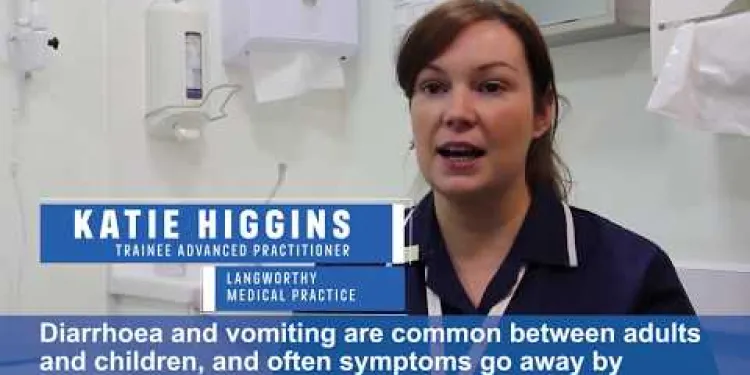
Advice for diarrhoea and vomiting
Relevance: 100%
-

My child has vomiting and diarrhoea - what do I do?
Relevance: 88%
-
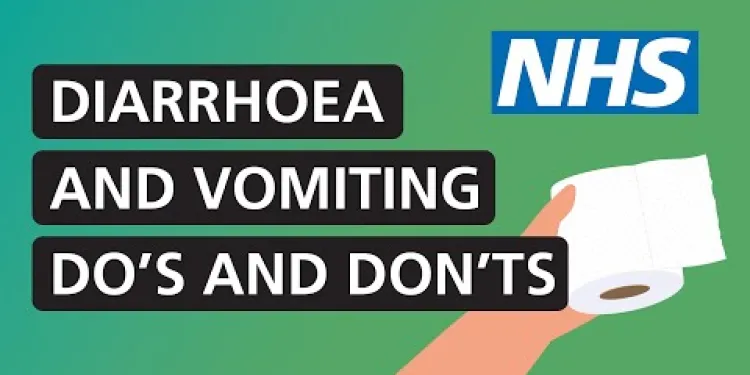
How to treat diarrhoea and vomiting at home (adults and children aged 5 and over) | NHS
Relevance: 78%
-
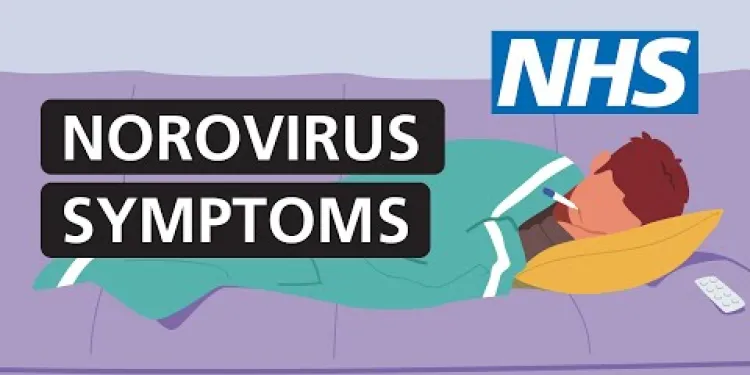
What is norovirus? (Diarrhoea and vomiting bug) | NHS
Relevance: 72%
-
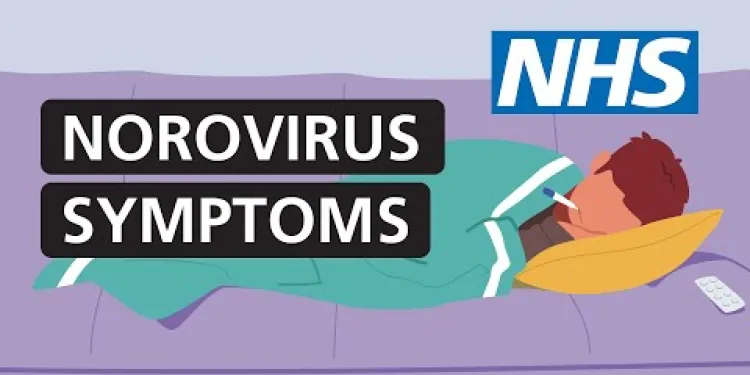
What is norovirus? (Diarrhoea and vomiting bug) | NHS
Relevance: 69%
-

Diarrhoea - How to stop it? | UHL NHS Trust
Relevance: 49%
-

What are common side effects of Wegovy?
Relevance: 32%
-

Can Ozempic lead to dehydration?
Relevance: 28%
-

What are common side effects of Ozempic?
Relevance: 27%
-
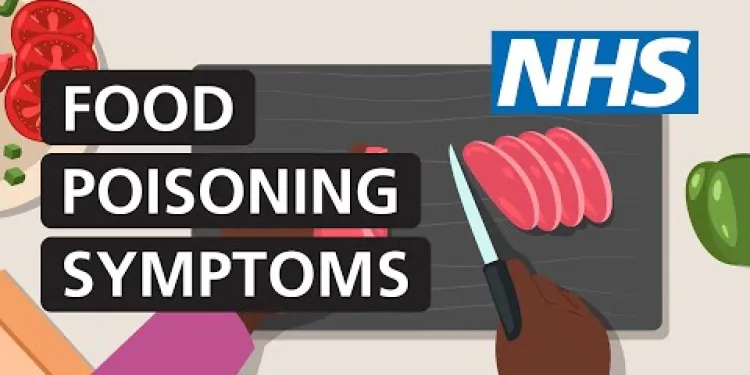
How to tell if you have food poisoning (symptoms) | NHS
Relevance: 27%
-

What are the common symptoms of appendicitis?
Relevance: 26%
-

What are the common side effects of Ozempic?
Relevance: 26%
-

When should I seek medical advice for norovirus?
Relevance: 26%
-

Are there any common side effects of Mounjaro?
Relevance: 25%
-

What are the symptoms of norovirus?
Relevance: 24%
-
What happens if I overdose on Ozempic?
Relevance: 23%
-

What are the symptoms of Bacillus cereus food poisoning?
Relevance: 23%
-

Can Ozempic cause severe gastrointestinal issues?
Relevance: 22%
-

Can antibiotics treat norovirus?
Relevance: 22%
-

What are common side effects of antibiotics?
Relevance: 21%
-
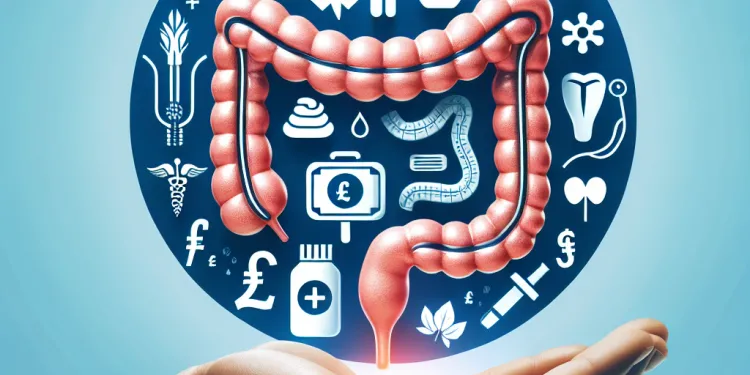
What are the side effects of bowel cancer treatment?
Relevance: 21%
-

What should I do if I have norovirus?
Relevance: 21%
-

What are the symptoms of Super Flu?
Relevance: 21%
-

Can E. coli infections be treated?
Relevance: 21%
-

What should I eat or drink if I have norovirus?
Relevance: 21%
-

What problems is Ozempic known to cause?
Relevance: 21%
-
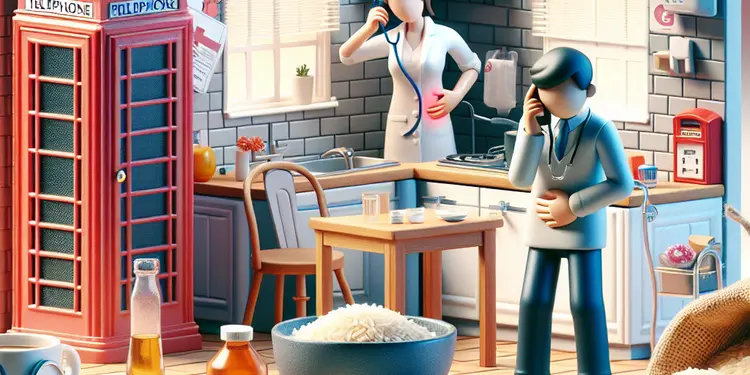
What should I do if I suspect food poisoning from rice?
Relevance: 21%
-

What are the common symptoms of Crohn's disease?
Relevance: 20%
-

Can I go to work or school if I have norovirus?
Relevance: 20%
-

Are there any gastrointestinal side effects from weight loss medications?
Relevance: 20%
-

Are there any serious risks associated with Ozempic?
Relevance: 20%
-

Can E. coli cause illness?
Relevance: 20%
-

What are the side effects of Ozempic?
Relevance: 20%
-

What are the symptoms of Marburg virus disease?
Relevance: 19%
-

What are the symptoms of measles?
Relevance: 19%
-

What are the symptoms of H3N2 flu?
Relevance: 19%
-

Dealing with Common Childhood Illnesses
Relevance: 19%
-

How common is norovirus in the UK?
Relevance: 19%
-
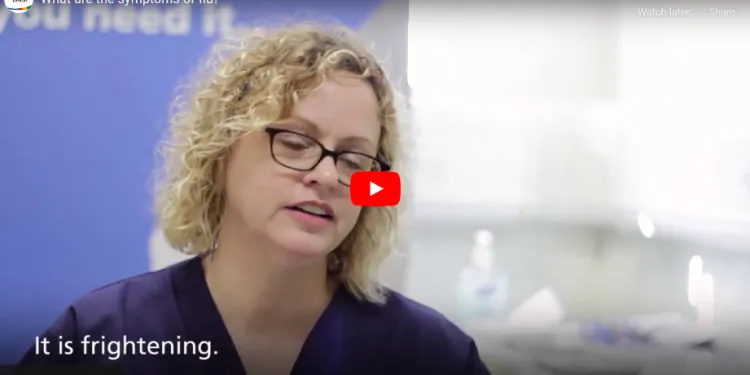
What are the symptoms of flu ?
Relevance: 18%
-

How long do norovirus symptoms last?
Relevance: 18%
Advice for Diarrhoea and Vomiting
Understanding the Symptoms
Diarrhoea and vomiting are common symptoms that many individuals in the United Kingdom face. These symptoms can arise from various causes including food poisoning, viral infections, or reactions to medications. Understanding their cause helps determine the best course of action for treatment and prevention.
Staying Hydrated
One of the most crucial steps in managing diarrhoea and vomiting is to stay hydrated. The body loses significant amounts of water and electrolytes, which can lead to dehydration. Drink plenty of fluids such as water, oral rehydration salts (ORS), and clear broths. Avoid caffeinated or alcoholic beverages as these can exacerbate dehydration.
Maintaining a Light Diet
During episodes of diarrhoea and vomiting, it is advisable to eat light and easily digestible foods. The BRAT diet, which includes bananas, rice, applesauce, and toast, can be helpful. These foods are gentle on the stomach and can help solidify stools. Gradually reintroduce more substantial foods as your symptoms improve.
Rest and Recovery
Allowing your body to rest is important. Avoid strenuous activities and get ample sleep to support your immune system in fighting off the infection. Resting helps the body recover faster and reduces the duration of symptoms.
Understanding When to Seek Medical Advice
While most cases of diarrhoea and vomiting are mild and resolve within a few days, it is important to know when to seek medical advice. If you experience symptoms such as severe abdominal pain, a high fever, signs of dehydration (e.g., dry mouth, dark urine, dizziness), or if the diarrhoea and vomiting persist for more than 48 hours, contact your GP or NHS 111 for further guidance.
Preventive Measures
To reduce the risk of diarrhoea and vomiting, practice good hygiene by regularly washing your hands with soap and water, especially before eating and after using the toilet. Be cautious with food hygiene as well; ensure that food is cooked thoroughly and stored properly to prevent foodborne illnesses.
Conclusion
By following these guidelines, individuals in the UK can effectively manage and recover from diarrhoea and vomiting. Staying informed about the symptoms, taking preventive measures, and knowing when to seek medical advice are key to maintaining good health.
Advice for Diarrhoea and Vomiting
Understanding the Symptoms
Diarrhoea and vomiting mean runny poo and being sick. These are common in the UK. They can happen because of things like bad food, viruses, or medicines. Knowing why you have these helps you fix and stop them.
Staying Hydrated
When you have diarrhoea and vomiting, drink lots of water. This is because your body loses water and important salts. Drink water, special drinks like oral rehydration salts, and clear soups. Do not drink tea, coffee or alcohol because they can make you more thirsty.
Maintaining a Light Diet
Eat simple foods when you feel sick. Try the BRAT diet: bananas, rice, applesauce, and toast. These foods are gentle for your tummy. Slowly try eating bigger meals when you feel better.
Rest and Recovery
It is important to rest your body. Sleep a lot and do not do hard activities. Rest helps your body fight the illness and get better faster.
Understanding When to Seek Medical Advice
Most of the time, diarrhoea and vomiting get better in a few days. But if you have a lot of tummy pain, a high fever, dry mouth, dark wee, feel dizzy, or if it lasts more than 2 days, talk to your doctor or call NHS 111.
Preventive Measures
To stop getting diarrhoea and vomiting, wash your hands with soap and water often, especially before eating and after using the toilet. Be careful with food; make sure it is cooked well and stored right to stop getting sick from food.
Conclusion
By following these steps, people in the UK can handle and get better from diarrhoea and vomiting. Knowing the signs, stopping it from happening, and knowing when to ask for help are important to stay healthy.
Frequently Asked Questions
What should I do if I have diarrhoea and vomiting?
Stay at home and rest, drink plenty of fluids to avoid dehydration, and eat small, light meals if you feel like it.
When should I seek medical advice?
Contact your GP or NHS 111 if you have severe symptoms such as blood in stools, continuous vomiting, symptoms lasting more than a few days, or if you suspect severe dehydration.
What can I drink to stay hydrated?
Drink water, oral rehydration solutions (ORS), and clear broths. Avoid caffeinated, alcoholic, or sugary drinks.
Can I take anti-diarrhoea medication?
Over-the-counter medications like loperamide can be used, but it’s best to consult with a pharmacist or GP, especially if it’s for children or if you have other health conditions.
What should I eat if I have diarrhoea and vomiting?
Eat bland foods like bananas, rice, applesauce, and toast (the BRAT diet). Avoid dairy, spicy foods, and fatty foods.
How can I prevent spreading diarrhoea and vomiting to others?
Wash your hands frequently with soap and water, avoid preparing food for others, clean and disinfect surfaces and toilets regularly.
How long should I stay away from work or school?
Avoid going to work or school until at least 48 hours after the last episode of diarrhoea or vomiting.
What can cause diarrhoea and vomiting?
Common causes include viral infections (such as norovirus), bacterial infections, food poisoning, and some medications.
How can I tell if I’m dehydrated?
Signs of dehydration include feeling thirsty, dark yellow and strong-smelling urine, feeling dizzy or light-headed, and having a dry mouth.
Can children be given the same treatment for diarrhoea and vomiting?
Children require special care. Ensure they drink plenty of fluids. ORS is recommended. Consult a GP if symptoms persist or worsen.
Is it safe to take probiotics?
Probiotics may help restore the natural balance of bacteria in the gut, but consult a healthcare professional before starting any new supplement.
Can stress cause diarrhoea and vomiting?
Yes, high levels of stress and anxiety can affect the digestive system and cause symptoms like diarrhoea and vomiting.
Are there any home remedies for diarrhoea and vomiting?
Ginger tea, peppermint, and chamomile tea are some home remedies that may help soothe the stomach. However, always consult with a healthcare professional if symptoms are severe or persist.
Is it necessary to see a doctor for mild diarrhoea and vomiting?
For mild symptoms, home care is often sufficient. If symptoms are severe, persistent, or you have concerns, contact your GP or NHS 111.
Can I get vaccinated against causes of diarrhoea and vomiting?
Yes, vaccines are available for certain causes such as rotavirus (given to babies) and typhoid. Speak with your GP about vaccines that may be appropriate for you.
What to Do If You Have Diarrhoea and Vomiting
If you have diarrhoea (runny poo) and vomiting (throwing up), here are some steps to help you feel better:
- Drink Fluids: Drink water or clear drinks like apple juice and clear soup to stay hydrated.
- Eat Simple Foods: Eat foods like bread, rice, or bananas when you feel ready.
- Rest: Make sure you get plenty of sleep to help your body recover.
- Stay Clean: Wash your hands often to stop germs from spreading.
- Seek Help: If you feel very sick or if it lasts a long time, talk to a doctor.
Using a timer or alarm can remind you to drink fluids regularly.
Stay at home and rest. Drink lots of water so you don't get thirsty. Eat small, simple meals if you feel hungry.
When should I ask a doctor for help?
If you feel very sick, you should talk to your GP or call NHS 111. Look out for bad signs like blood in your poo, throwing up all the time, feeling sick for more than a few days, or if you think you might be very dehydrated.
What drinks help you stay healthy and strong?
Drink water, special drinks that help you feel better when sick (ORS), and clear soups. Do not drink things with caffeine, alcohol, or lots of sugar.
Can I take medicine for diarrhoea?
If you have diarrhoea, there is medicine that can help stop it.
It is a good idea to check with a doctor or a nurse before taking the medicine, especially if you are not sure.
Another helpful thing is to drink lots of water. This can stop you from getting too thirsty or tired.
Tools like picture charts or reminder notes can help you remember when to take your medicine.
You can buy some medicines like loperamide without a prescription. But it’s a good idea to talk to a pharmacist or a doctor first, especially if it’s for kids or if you have other health problems.
What should I eat if I feel sick and have a runny tummy?
Eat simple foods like bananas, rice, applesauce, and toast. This is called the BRAT diet. Stay away from milk, spicy foods, and oily foods.
How can I stop spreading tummy bugs to others?
Here are some easy steps to help keep everyone healthy:
- Wash your hands: Use soap and water to wash your hands often, especially after using the toilet and before eating.
- Stay home: If you feel sick, stay at home and rest. Don’t go to work or school.
- Use tissues: Always sneeze or cough into a tissue. Throw the tissue in the bin afterwards.
- Clean surfaces: Wipe down things you touch a lot, like door handles and toilets, with cleaning spray.
- Don’t share: Use your own towels, cups, and cutlery. Don’t share these items with others.
If you need help, ask someone you trust. Using reminders or setting an alarm can help you remember what to do next.
Wash your hands a lot with soap and water. Don't make food for other people. Clean and wipe down surfaces and toilets often.
When can I go back to work or school?
Stay at home and do not go to work or school until at least 2 days after you last had diarrhoea or were sick.
What can make you have runny poo and feel sick?
Sometimes, you might have runny poo or feel like throwing up. Here are some things that can make this happen:
- Eating food that is old or bad
- Drinking water that is not clean
- Having germs or bugs in your tummy
- Feeling very nervous or stressed
- Some medicines can make your tummy upset
If you feel this way, tell a grown-up. They can help you feel better. Drinking water is important.
Using picture charts might help you understand better.
Sometimes, people get sick in their tummy. This can happen because of tiny germs, like viruses or bacteria. It's like catching a cold, but in your stomach. You can also feel this way if food is not cooked properly or if you take certain medicines.
Here are some tips that can help you understand:
- Germs: Tiny bugs that can make you feel sick.
- Viruses: A kind of germ that spreads easily, like the norovirus.
- Bacteria: Another kind of germ that can grow in food that's not cooked properly.
- Food poisoning: When food makes you sick because it has germs in it.
- Medications: Sometimes, the medicine you take can upset your stomach.
If reading is hard, you can try:
- Asking someone to read with you.
- Using audiobooks to listen to the text.
- Breaking the text into smaller parts.
- Looking at pictures to help understand the words.
How do I know if I am thirsty?
Here are some signs that you might be thirsty:
- Your mouth feels dry.
- You feel tired or dizzy.
- Your pee is dark yellow.
- You feel very thirsty.
If you think you might be thirsty, you can:
- Drink some water or juice.
- Eat fruits like watermelon or oranges.
- Ask an adult for help.
Here are signs that you need more water:
- You feel very thirsty.
- Your pee is dark yellow and smells strong.
- You feel dizzy or like you might fall over.
- Your mouth feels dry.
If you find it hard to drink enough water, try these tips:
- Carry a water bottle with you.
- Set reminders to drink water.
- Drink a little water with each meal.
Can kids get the same care for upset tummy and throwing up?
If a child has upset tummy or is throwing up, can they get the same care? This means using the same things to help them feel better.
Helpful Tips:
- Give them lots of water to drink so they stay strong.
- Let them rest as much as they want.
- Talk to a doctor if they don’t get better soon.
Use pictures and simple charts to help understand.
Children need special care. Make sure they drink a lot of water or juice. ORS can help if they feel sick. Talk to a doctor if they do not get better or if they get worse.
Are probiotics safe?
Good bacteria in your tummy can get mixed up. Probiotics can help fix this. Talk to a doctor before taking any new pills.
Can stress make you feel sick or throw up?
Stress is when you feel worried or scared. It can make your tummy hurt.
Sometimes, stress can make you need to use the toilet more or make you feel like throwing up.
If you feel this way, here are some things you can try:
- Take deep breaths or try to relax.
- Talk to a friend or a grown-up you trust.
- Listen to music or read a book you like.
If you keep feeling sick, it's a good idea to talk to a doctor or nurse.
Yes, feeling really worried or stressed can make your tummy upset. This can lead to tummy troubles like going to the toilet a lot or being sick.
What can I do at home for a poorly tummy and being sick?
If you have a poorly tummy or feel sick, here are some things you can try:
- Drink lots of water. Sipping water helps you stay strong.
- Eat plain foods. Try things like bread or rice. They can be gentle on your tummy.
- Rest. Lying down and taking it easy can help you feel better.
- Stay away from fizzy drinks and juice. They can make your tummy feel worse.
If you don’t feel better soon, ask an adult to help or see a doctor.
Ginger tea, peppermint, and chamomile tea might help if you have a sore tummy. But if it hurts a lot or doesn't get better, talk to a doctor or nurse.
Do I need to see a doctor if I have a little bit of diarrhoea or vomiting?
If you feel a little bit sick, you can usually get better at home. But if you feel very sick, or if you don't feel better for a long time, or if you are worried, call your doctor or NHS 111 for help.
Can I get a vaccine for diarrhea and throwing up?
Yes, you can get a vaccine to help stop some bugs that make you sick with diarrhea and throwing up.
Vaccines can protect you from certain illnesses. They help your body fight off bugs.
It's good to ask your doctor or nurse about vaccines. They can tell you which ones are best for you.
Yes, there are shots you can get to stop some sicknesses. Babies can get a shot for something called rotavirus. There is also a shot for typhoid. Talk to your doctor about which shots you might need.
Useful Links
Have you found an error, or do you have a link or some information you would like to share? Please let us know using the form below.
-->
This website offers general information and is not a substitute for professional advice.
Always seek guidance from qualified professionals.
If you have any medical concerns or need urgent help, contact a healthcare professional or emergency services immediately.
Some of this content was generated with AI assistance. We’ve done our best to keep it accurate, helpful, and human-friendly.
- Ergsy carfully checks the information in the videos we provide here.
- Videos shown by Youtube after a video has completed, have NOT been reviewed by ERGSY.
- To view, click the arrow in centre of video.
- Most of the videos you find here will have subtitles and/or closed captions available.
- You may need to turn these on, and choose your preferred language.
- Go to the video you'd like to watch.
- If closed captions (CC) are available, settings will be visible on the bottom right of the video player.
- To turn on Captions, click settings .
- To turn off Captions, click settings again.
More Items From Ergsy search
-

Advice for diarrhoea and vomiting
Relevance: 100%
-

My child has vomiting and diarrhoea - what do I do?
Relevance: 88%
-

How to treat diarrhoea and vomiting at home (adults and children aged 5 and over) | NHS
Relevance: 78%
-

What is norovirus? (Diarrhoea and vomiting bug) | NHS
Relevance: 72%
-

What is norovirus? (Diarrhoea and vomiting bug) | NHS
Relevance: 69%
-

Diarrhoea - How to stop it? | UHL NHS Trust
Relevance: 49%
-

What are common side effects of Wegovy?
Relevance: 32%
-

Can Ozempic lead to dehydration?
Relevance: 28%
-

What are common side effects of Ozempic?
Relevance: 27%
-

How to tell if you have food poisoning (symptoms) | NHS
Relevance: 27%
-

What are the common symptoms of appendicitis?
Relevance: 26%
-

What are the common side effects of Ozempic?
Relevance: 26%
-

When should I seek medical advice for norovirus?
Relevance: 26%
-

Are there any common side effects of Mounjaro?
Relevance: 25%
-

What are the symptoms of norovirus?
Relevance: 24%
-
What happens if I overdose on Ozempic?
Relevance: 23%
-

What are the symptoms of Bacillus cereus food poisoning?
Relevance: 23%
-

Can Ozempic cause severe gastrointestinal issues?
Relevance: 22%
-

Can antibiotics treat norovirus?
Relevance: 22%
-

What are common side effects of antibiotics?
Relevance: 21%
-

What are the side effects of bowel cancer treatment?
Relevance: 21%
-

What should I do if I have norovirus?
Relevance: 21%
-

What are the symptoms of Super Flu?
Relevance: 21%
-

Can E. coli infections be treated?
Relevance: 21%
-

What should I eat or drink if I have norovirus?
Relevance: 21%
-

What problems is Ozempic known to cause?
Relevance: 21%
-

What should I do if I suspect food poisoning from rice?
Relevance: 21%
-

What are the common symptoms of Crohn's disease?
Relevance: 20%
-

Can I go to work or school if I have norovirus?
Relevance: 20%
-

Are there any gastrointestinal side effects from weight loss medications?
Relevance: 20%
-

Are there any serious risks associated with Ozempic?
Relevance: 20%
-

Can E. coli cause illness?
Relevance: 20%
-

What are the side effects of Ozempic?
Relevance: 20%
-

What are the symptoms of Marburg virus disease?
Relevance: 19%
-

What are the symptoms of measles?
Relevance: 19%
-

What are the symptoms of H3N2 flu?
Relevance: 19%
-

Dealing with Common Childhood Illnesses
Relevance: 19%
-

How common is norovirus in the UK?
Relevance: 19%
-

What are the symptoms of flu ?
Relevance: 18%
-

How long do norovirus symptoms last?
Relevance: 18%


